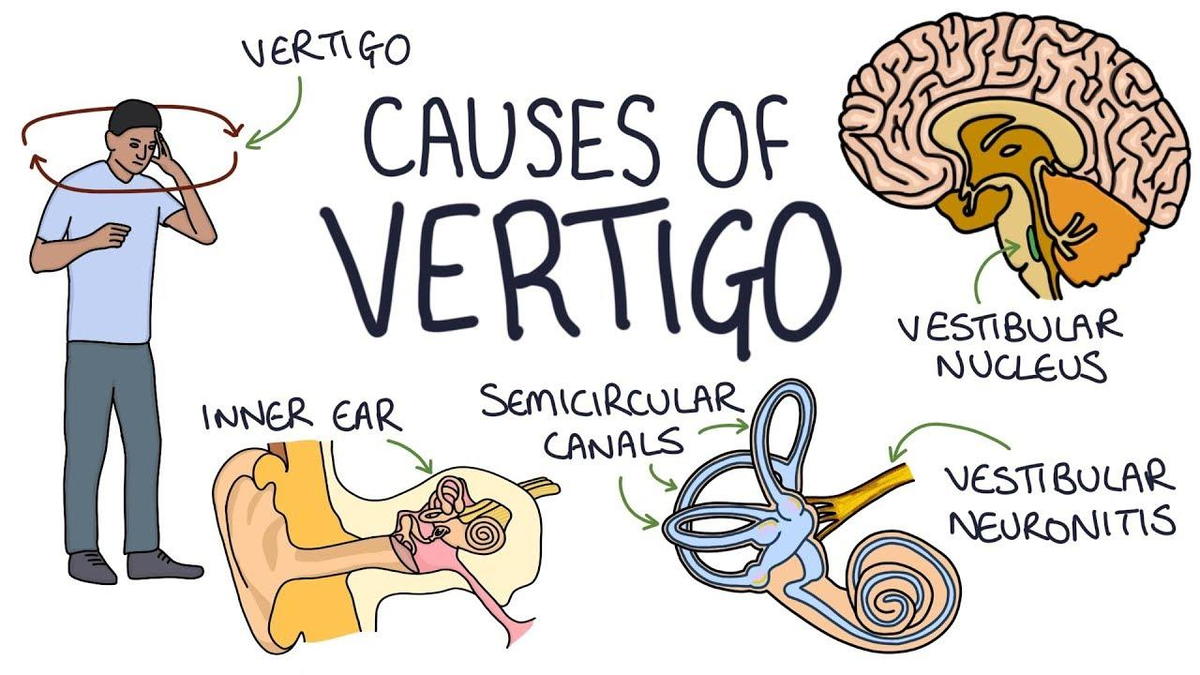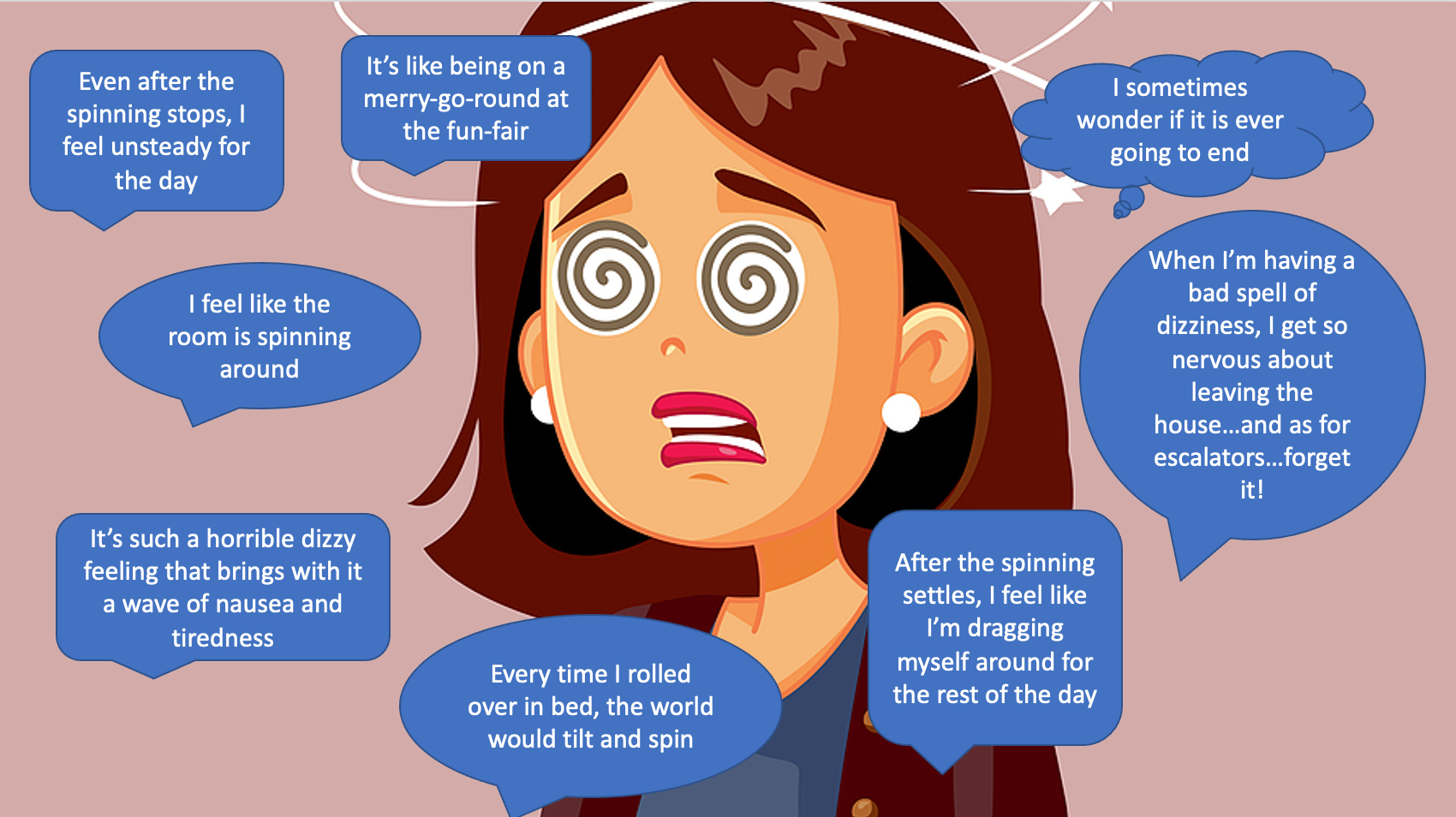What can cause vertigo like symptoms – Vertigo-like symptoms, encompassing dizziness, lightheadedness, and imbalance, can stem from various underlying causes. Understanding these triggers is crucial for effective management and prevention. This comprehensive guide delves into the potential causes of vertigo-like symptoms, offering insights into their mechanisms and implications.
From inner ear disorders and neurological conditions to environmental factors and medication side effects, we’ll explore the diverse spectrum of causes that can lead to these distressing symptoms. By unraveling the root causes, individuals can make informed decisions regarding their health and well-being.
Types of Vertigo-Like Symptoms

Vertigo-like symptoms encompass a range of sensations that can affect balance and spatial orientation. These symptoms can vary in intensity and duration, and can be classified into three main types:
Dizziness
Dizziness is a general feeling of lightheadedness or faintness. It can be accompanied by a sense of unsteadiness or a feeling of being “off balance.” Dizziness can be caused by a variety of factors, including dehydration, low blood sugar, or changes in blood pressure.
Lightheadedness
Lightheadedness is a feeling of near-fainting or loss of consciousness. It can be caused by a sudden drop in blood pressure, which can occur when standing up too quickly or after exercising. Lightheadedness can also be a symptom of anemia or heart problems.
Imbalance
Imbalance is a feeling of being unsteady or off balance. It can be caused by problems with the inner ear, which is responsible for balance. Imbalance can also be a symptom of neurological disorders, such as Parkinson’s disease or multiple sclerosis.
Vertigo-like symptoms can be caused by a variety of factors, including ear infections, migraines, and even certain medications. If you’re experiencing these symptoms, it’s important to see a doctor to rule out any underlying medical conditions. Once a diagnosis has been made, your doctor can recommend the best course of treatment.
In some cases, vertigo can be cured, but in others, it may only be managed. To learn more about the curability of vertigo, click here . Additionally, there are a number of things you can do at home to help relieve your symptoms, such as avoiding sudden movements, getting regular exercise, and eating a healthy diet.
Causes of Vertigo-Like Symptoms
Vertigo-like symptoms can arise from various underlying conditions affecting the inner ear, neurological system, or other bodily systems. Here are some common causes:
Inner Ear Disorders, What can cause vertigo like symptoms
Inner ear disorders involve disturbances in the delicate structures responsible for balance and hearing. These disorders can disrupt the normal functioning of the inner ear, leading to vertigo-like symptoms.
Ménière’s Disease
Ménière’s disease is a chronic condition characterized by episodes of vertigo, hearing loss, and tinnitus (ringing in the ears). It occurs due to an abnormal buildup of fluid in the inner ear, causing pressure and irritation.
Labyrinthitis
Labyrinthitis is an inflammation of the inner ear, specifically the labyrinth, which contains structures essential for balance and hearing. Viral or bacterial infections commonly trigger this condition, leading to vertigo, nausea, and hearing loss.
Vestibular Neuritis
Vestibular neuritis refers to inflammation of the vestibular nerve, which transmits balance information from the inner ear to the brain. Similar to labyrinthitis, it often results from viral infections and causes sudden-onset vertigo, along with nausea and vomiting.
Other Medical Conditions
:max_bytes(150000):strip_icc()/causes-of-vertigo-1298945-color-V13-614e9f9446fe4596bd4180958509cc61.png)
Vertigo-like symptoms can also be caused by various other medical conditions beyond ear problems. These include cardiovascular conditions and metabolic disorders.
Cardiovascular conditions that can lead to vertigo-like symptoms include arrhythmias, heart disease, and hypotension. Arrhythmias are abnormal heart rhythms that can cause a drop in blood pressure and lead to dizziness and lightheadedness. Heart disease, such as coronary artery disease, can narrow the arteries that supply blood to the brain, resulting in decreased blood flow and vertigo-like symptoms.
Hypotension, or low blood pressure, can also cause dizziness and lightheadedness due to reduced blood flow to the brain.
Metabolic Disorders
Metabolic disorders that can cause vertigo-like symptoms include diabetes, thyroid disorders, and vitamin B12 deficiency. Diabetes can damage blood vessels and nerves, leading to decreased blood flow to the brain and balance problems. Thyroid disorders, such as hypothyroidism and hyperthyroidism, can affect the body’s overall health and balance, causing dizziness and lightheadedness.
Vitamin B12 deficiency can lead to anemia, which can cause fatigue, weakness, and dizziness.
Environmental Factors
Environmental factors can also trigger vertigo-like symptoms, such as motion sickness and dehydration.
Motion Sickness
Motion sickness is a common cause of vertigo-like symptoms, such as dizziness, nausea, and vomiting. It occurs when the brain receives conflicting signals from the inner ear, eyes, and body about the body’s movement. The inner ear contains fluid-filled canals that help with balance.
When the head moves, the fluid in these canals moves, sending signals to the brain about the head’s position. The eyes also send signals to the brain about the head’s movement. If the signals from the inner ear and eyes do not match, the brain can become confused and cause motion sickness.
Dehydration
Dehydration can also lead to vertigo-like symptoms, such as dizziness and lightheadedness. Dehydration occurs when the body does not have enough water. Water is essential for many bodily functions, including maintaining blood pressure and regulating body temperature. When the body is dehydrated, blood pressure can drop, which can lead to dizziness and lightheadedness.
Medications: What Can Cause Vertigo Like Symptoms

Medications can also cause vertigo-like symptoms as a side effect. Certain medications, such as antibiotics, antidepressants, and anticonvulsants, can affect the balance system in the inner ear or the central nervous system, leading to symptoms such as dizziness, vertigo, and nausea.
For example, antibiotics like gentamicin and streptomycin can damage the hair cells in the inner ear, which are responsible for balance and hearing. Antidepressants like amitriptyline and paroxetine can affect the neurotransmitters in the brain that control balance. Anticonvulsants like phenytoin and carbamazepine can also cause dizziness and vertigo as a side effect.
Concluding Remarks
Vertigo-like symptoms can arise from a multitude of factors, ranging from inner ear imbalances to neurological disorders and environmental triggers. Recognizing the underlying cause is paramount for appropriate diagnosis and treatment. By understanding the potential causes, individuals can proactively manage their symptoms, improve their quality of life, and prevent future episodes.
